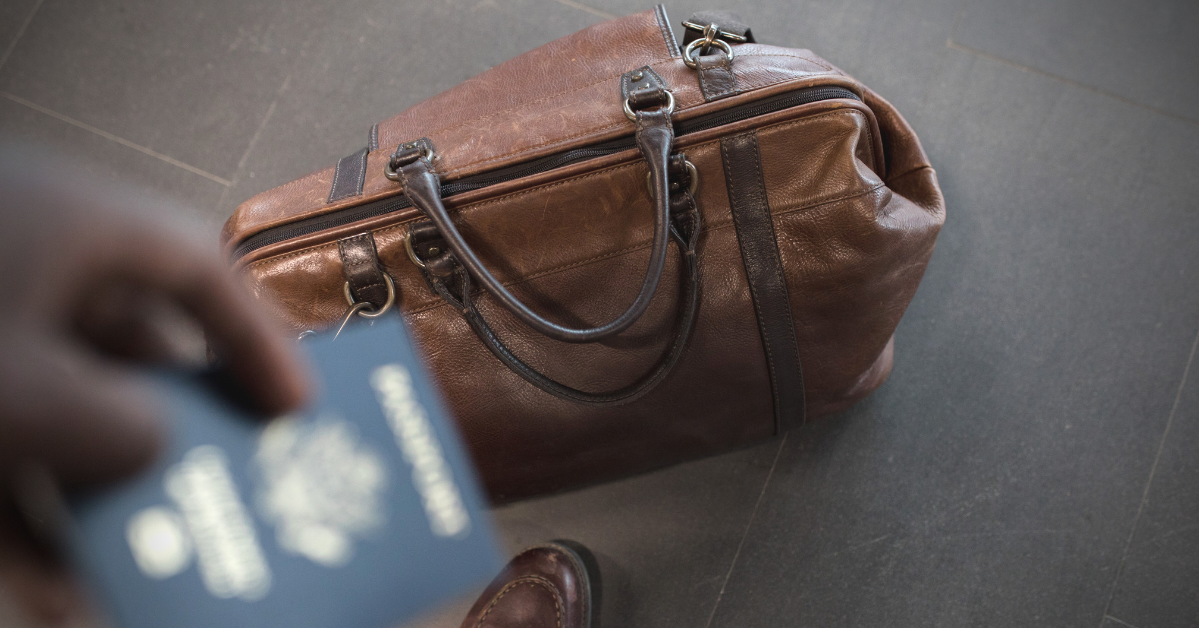
We all know that traveling during the holidays can be beyond stressful in and of itself. And traveling with diabetes can be an additional challenge that calls for plenty of time for attention to detail and planning. It’s not fun but for me, I look at it as the cost of doing the business of managing my type 1 diabetes.
Be Self-contained
Those of us with diabetes understand the need to pack our items carefully, and in my case, overpack in case of the unexpected. However, the best advice I can lend from my personal experience of traveling with type 1 diabetes for 30 years is this: be self-contained and assume nothing, and I mean nothing.
Whether you’re staying in a hotel or someone’s home (for me, when it comes to diabetes, there is no distinction) don’t assume that you will have immediate access to juice or anything else in a low blood sugar emergency. Bring your own low blood sugar treatment! I do this even when staying at family members’ homes and especially if I’m traveling alone. I don’t want to be rummaging through someone’s refrigerator at 2 in the morning or running down to the hotel front desk only to be told that the gift shop is closed.
Clearly, if you’re on a plane and there is turbulence, your flight attendants may not be able to get out of their seats to get you juice in time to treat your low. So as you’re being seated, make sure that your low blood glucose treatment is within your reach at all times, not stuffed in your carry on bag in an overhead bin somewhere. Personally, my low glucose treatment sits right at my feet or even in the seat pocket in front of me. I cannot stress enough, be prepared to self-treat.
Additionally, if traveling by plane, I always pack my backup supplies in my carry on. And even though it may add to all the “stuff” I have to drag along, it produces a sense of comfort knowing that if my checked baggage were to be lost or stolen, I would have my diabetes supplies with me. Plus, as most of us are aware, there are temperature exposure constraints for insulin, test strips, and other diabetes supplies. Nobody at an airport or anywhere else is going to separate me from my diabetes “stuff” while I travel! Something to think about at the very least.
Bring More Supplies Than You Think You Will Need
Another example of being self-contained is having more medical supplies and medications than you think you will need. I have my own way of calculating how many supplies I will bring and yes, it’s a bit over the top, but it’s a comfort to me, so I do it. Bottom line, take more than you think you will need because you just never know.
Be Considerate of Your Host or Hotel Staff
In my mind, one of the most inconsiderate things a person with diabetes can do is throw their used lancets, syringes, pen needles, pump supplies or any other type of used paraphernalia directly into the trash! This makes me cringe just thinking about how awful that is. Always bring your own sharps containers with you. I know it can be a hassle but it’s the right thing to do. Can you imagine being stuck with a used lancet or pen needle from someone else? Also, if you’re going to be in another state, it wouldn’t hurt to find out what the biohazard laws are and where you might be able to dispose of your used items before you return home.
An Educational Moment
Once, I was staying at a family member’s home. My relative proudly opened her refrigerator and said to me, “Look! I took all the sugar out of the refrigerator so that you wouldn’t be tempted!” Her smile was so loving and sweet but I had to let her know that it was ok and preferable to have something sweet for me to grab in an emergency. So, even though I’m always self-contained, I used this opportunity as a teaching moment and she and I sat down and went over my preferences and needs. She told me that it helped her a lot as she didn’t have any clue about what I might need. Now she knows that having my desired little cans of juice tucked into the refrigerator was a good thing. I would suggest you also have a chat with your hosts about how best they can support your diabetes needs. It sounds simple but it can really help them learn how they can help you while you are in their home.
Remember, nobody understands your diabetes management better than you. So be well prepared and have happy, safe and uneventful travels!

